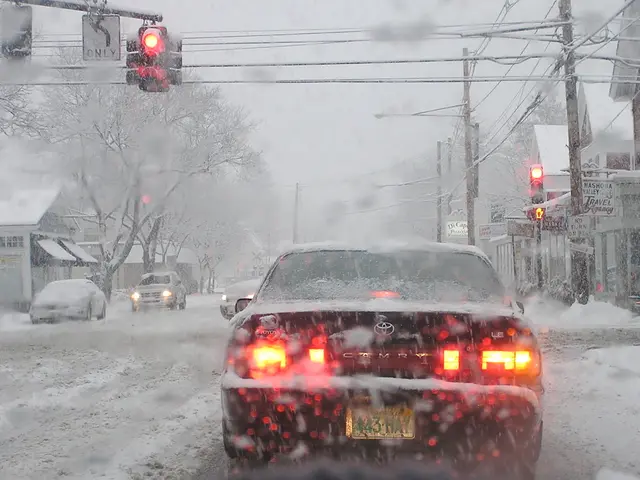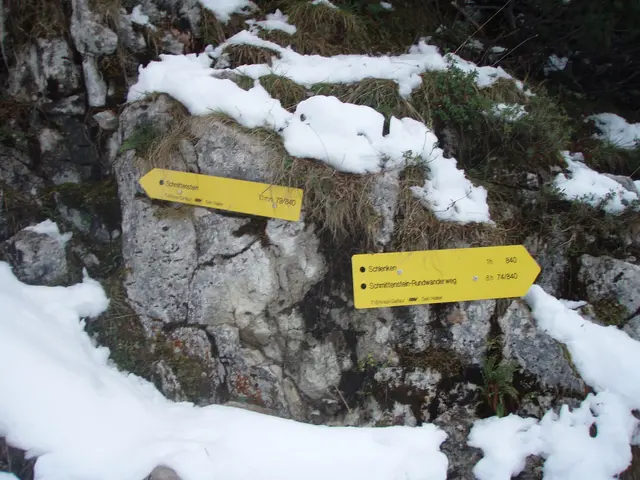Escalating wildfires in Western Canada lead to additional evacuations, intensifying the crisis.
Wildfire Chaos Hits Manitoba's Indigenous Communities
In the heart of Canada, the province of Manitoba is grappling with a severe wildfire crisis. Hundreds of residents from remote indigenous communities have been forcibly evacuated due to the relentless advance of over two dozen uncontrolled forest fires.
The epicenter of this calamity lies in the northwestern regions of Manitoba, where the raging fire is spreading unchecked, triggering a wave of mass evacuations. Approximately 17,000 people have already abandoned their homes, and hundreds more were issued evacuation orders on Saturday.
One of the most destructive fires has already consumed around 38,000 hectares of forest, compelling the evacuation of the 5,000 inhabitants of the mining town of Flin Flon. The town, now under imminent threat by the flames, has been evacuated completely. Provincial authorities also ordered the evacuation of the 600 residents of Cranberry Portage, a town near Flin Flon, which is now faced with a fire that not only endangers their homes, but has also left the community without electricity.
Just 100 kilometers north, Chinook helicopters from the Canadian army are transporting residents of Mathias Colomb Cree Nation, one of the indigenous communities affected by the fire. The evacuation of this nation began on Wednesday and is expected to continue throughout the weekend, as the fire, which has consumed nearly 9,785 hectares, remains out of control and poses a constant danger to residents.
Smoke and Health Hazards
The peril doesn't end with the immediate threat of the fire. The smoke generated by these fires has seriously degraded air quality, making it hazardous for health. The Canadian Ministry of Environment has warned the populace to limit their time outdoors to avoid respiratory issues, especially in these isolated communities. Smoke from these fires, some uncontrollable, is crossing the Atlantic Ocean and could reach Spain this weekend.
Climate change has created meteorological conditions seven times more conducive to wildfires in Canada. The regions most affected are British Columbia, Alberta, Saskatchewan, Manitoba, and Ontario, experiencing a whopping 22 active wildfires as Canada braces for this environmental crisis. Manitoba and Saskatchewan have declared a state of emergency, allocating additional resources for firefighting and population protection.
Here's a quick snapshot of the situation:
| Aspect | Status/Impact Summary ||---------------------------------|--------------------------------------------------------|| Active Wildfires | Over 22 in Manitoba; Over 170 nationwide || Evacuations | 17,000+ in Manitoba; 8,000+ in Saskatchewan || Indigenous Community Impact | Disproportionately affected, lack of resources || Emergency Declarations | Manitoba and Saskatchewan: State of Emergency || Air Quality | Hazardous across Manitoba and U.S. Midwest || Acres Burned (Canada) | Over 1.5 million acres (size of Delaware) |
Indigenous communities, particularly remote ones, are disproportionately affected by this crisis. A lack of resources, inadequate emergency preparedness, and evacuation challenges make them vulnerable. The social and health implications of this crisis, which threatens their ways of life, are significant and ongoing.
- The wildfire crisis in Manitoba is not limited to direct destruction; the smoke generated poses a health hazard, with the Canadian Ministry of Environment advising residents to limit outdoor activities to avoid respiratory issues.
- Climate change has resulted in meteorological conditions seven times more conducive to wildfires in Canada, with Manitoba, Saskatchewan, and other provinces experiencing over 22 active wildfires, pushing the need for a state of emergency.
- In the context of environmental science and weather forecasting, it's crucial to recognize that the smoke from these wildfires in Manitoba could potentially reach Spain this weekend, highlighting the global impact of climate-change-induced wildfires on the environment.








